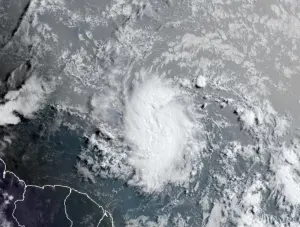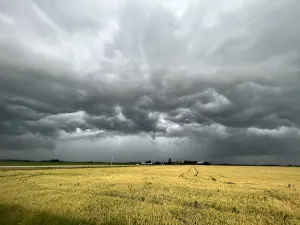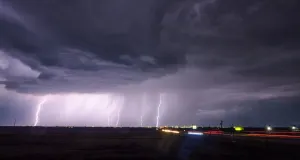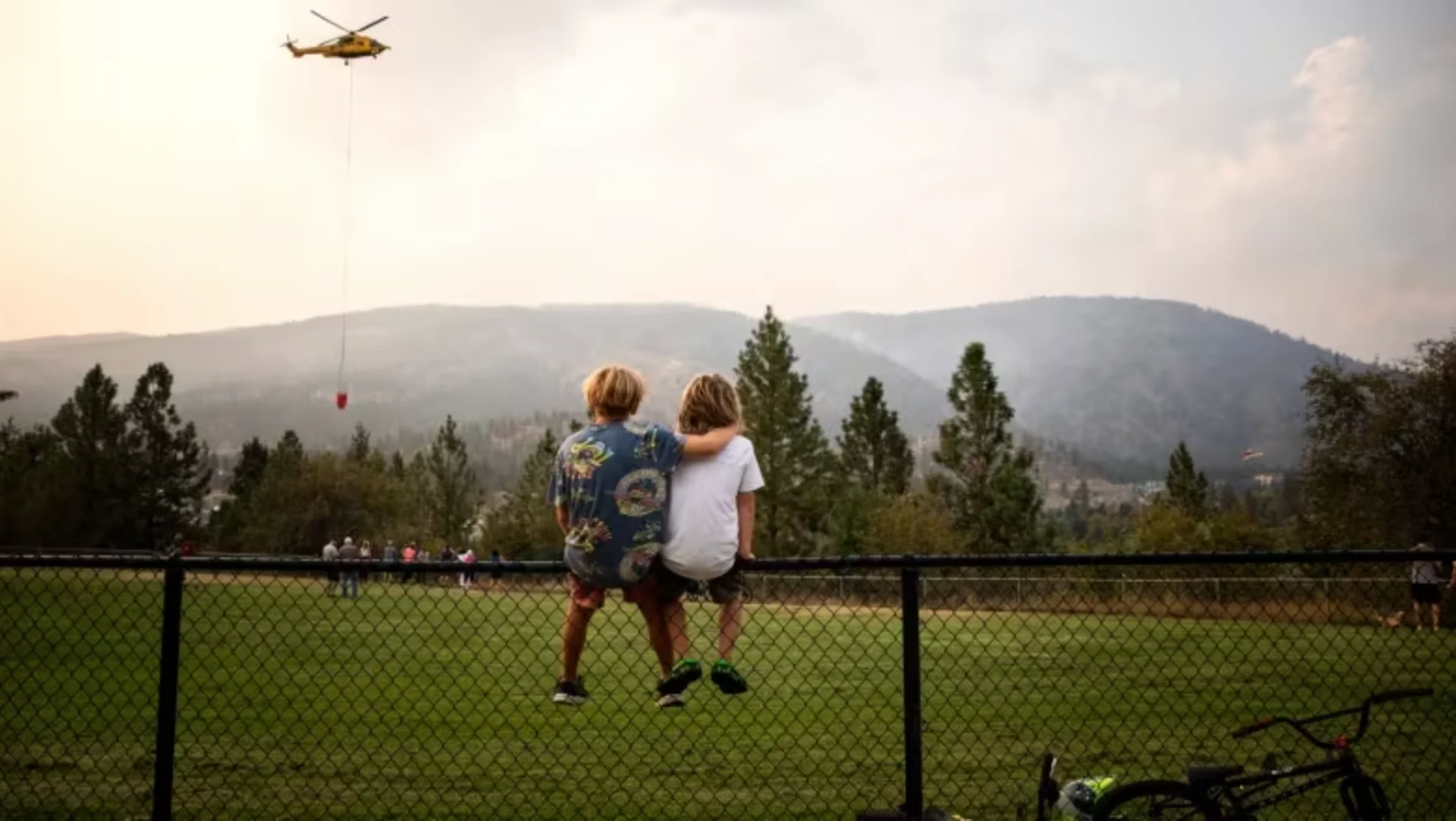
Late-season wildfires are usually caused by people, B.C. officials say
Visit The Weather Network's wildfire hub to keep up with the latest on the unprecedented wildfire season across Canada.
As nights become longer and the heat of summer begins to ebb, so too does the threat of lightning sparking new wildfires. But that's prompted the B.C. government to urge residents to take care not to extend what's been a record-breaking fire season.
Minister of Forests Bruce Ralston said at a provincial briefing on Thursday that while most wildfires over the summer months are caused by lightning, the majority of fires that start in September or beyond are caused by people.
"We ask everyone to do their part in not causing human-caused fire starts," he said.
The warning comes amid encouraging news that two of the three wildfires making up a devastating complex that destroyed almost 200 homes around Okanagan Lake in the B.C. Interior are now under control.
So far this wildfire season there have been 2,032 fires, with 418 currently active, according to the B.C. Wildfire Service (BCWS). Of the total, 1,458 were caused by lightning, 450 were caused by people and the other 124 have an unknown cause, the service says.
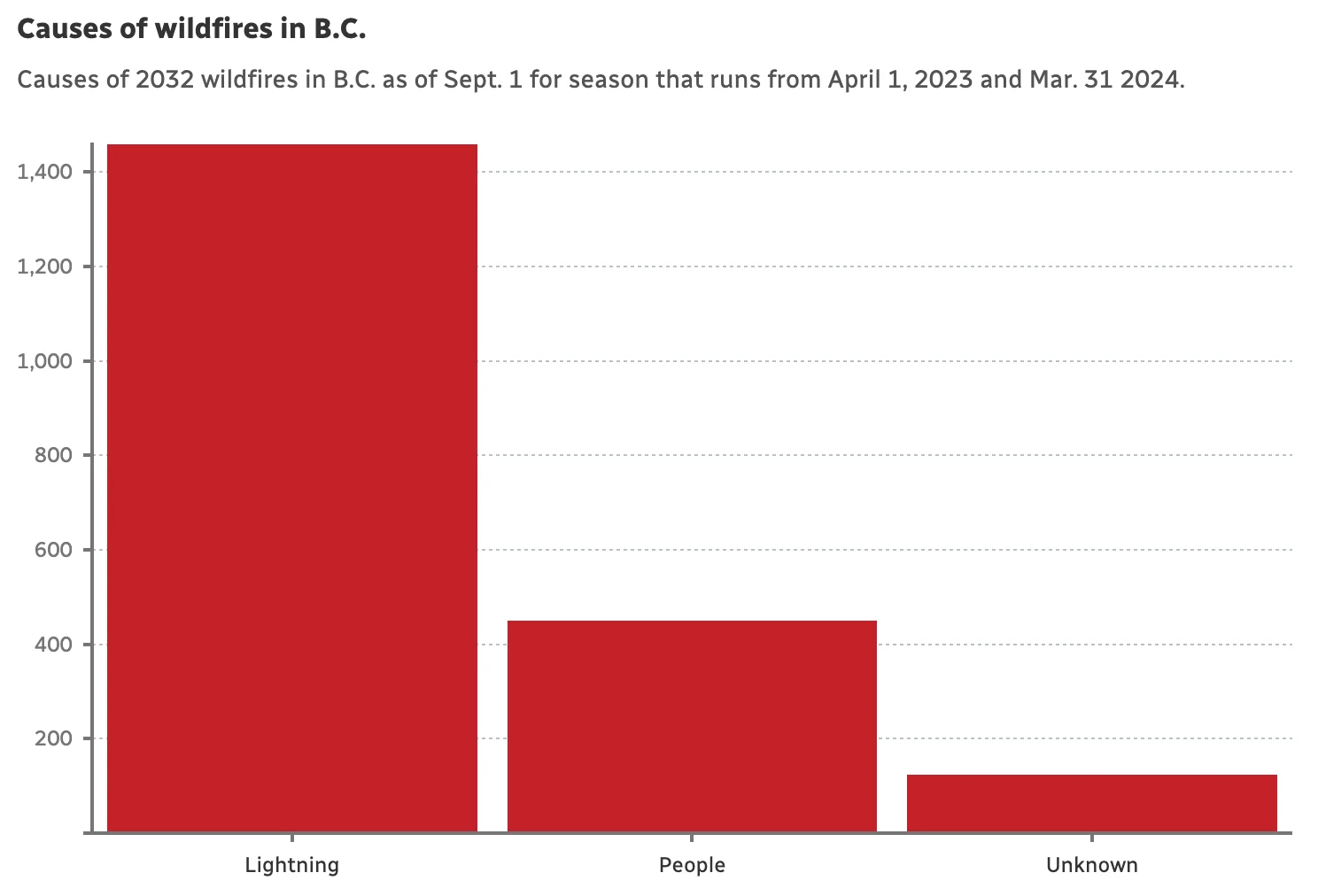
Source: B.C. Wildfire Service (Chad Pawson/CBC News)
SEE ALSO: Number of homes destroyed or damaged by wildfire in B.C.'s Okanagan rises to 189
Academics say above-average heat, the ongoing drought across the province and increased lightning have been major contributors to the fires that have already burned more than 19,000 square kilometres across the province so far this year, with weeks or possibly even months still left to go in the season.
The BCWS says people can start fires through vehicle and engine use, industrial activities, fireworks, sky-lanterns, outdoor flames or discarding burning items such as cigarettes.
Currently almost the entire province is under a campfire and open burning ban to try to guard against igniting new fires.
The latest ban came at noon on Thursday for B.C.'s Northwest Fire Centre due to dry and hot conditions in the region.
DON'T MISS: Vancouver's architecture, by design, was never meant to handle extreme heat
WATCH: Volunteers in overdrive as donations flood in for B.C. wildfire victims
Defiant McDougall Creek fire
One of this season's most destructive fires, the McDougall Creek blaze, continues to defy suppression efforts and is now 137 square kilometres in size, the BCWS says.
The Central Okanagan emergency operations centre says although the nearby Lake Country and Clifton-McKinley fires are now under control, evacuation alerts remain in place, and residents need to be ready to leave at short notice.
Meanwhile, firefighters are warning residents in northern B.C. that forecast high winds are likely to feed the growth of wildfires over the next two days.
A heat wave amid dry conditions will likely cause more fire activity if fanned by stronger winds, the BCWS says.
Further south, wet and cool weather has helped fire crews in the southern Interior of B.C. this week, with rainfall in the Fraser Canyon and Shuswap regions, as well as Central Okanagan, helping firefighters.
Officials say it has helped crews contain several major fires such as Kookipi Creek south of Lytton from further growth.
Provincial Emergency Management Minister Bowinn Ma on Thursday extended B.C.'s state of emergency until Sept. 14 and said drought conditions may last into next year.
About 4,200 people in the province remain on evacuation orders, with another 65,000 on alert to be ready to evacuate on short notice.
This article, written by Chad Pawson, was originally published for CBC News.






